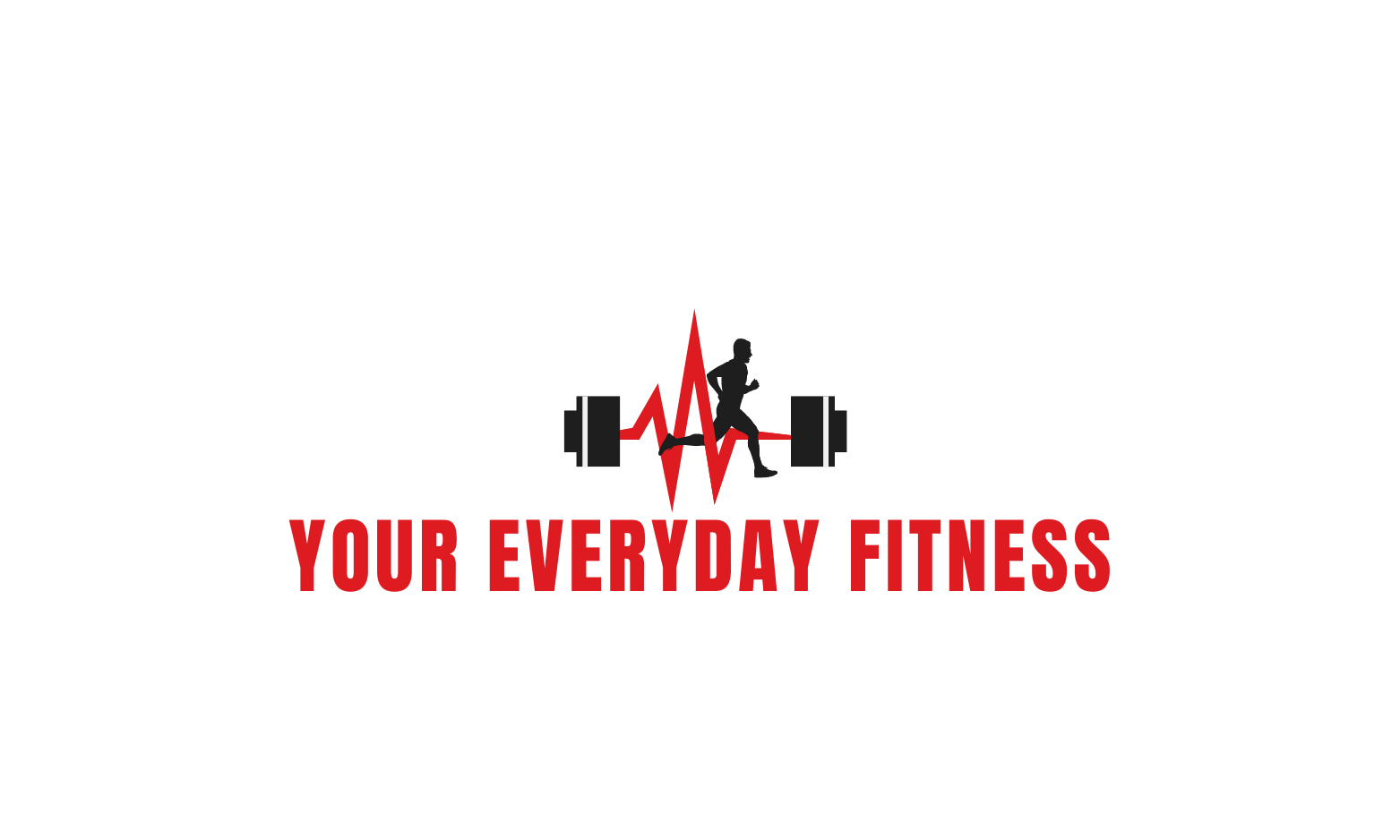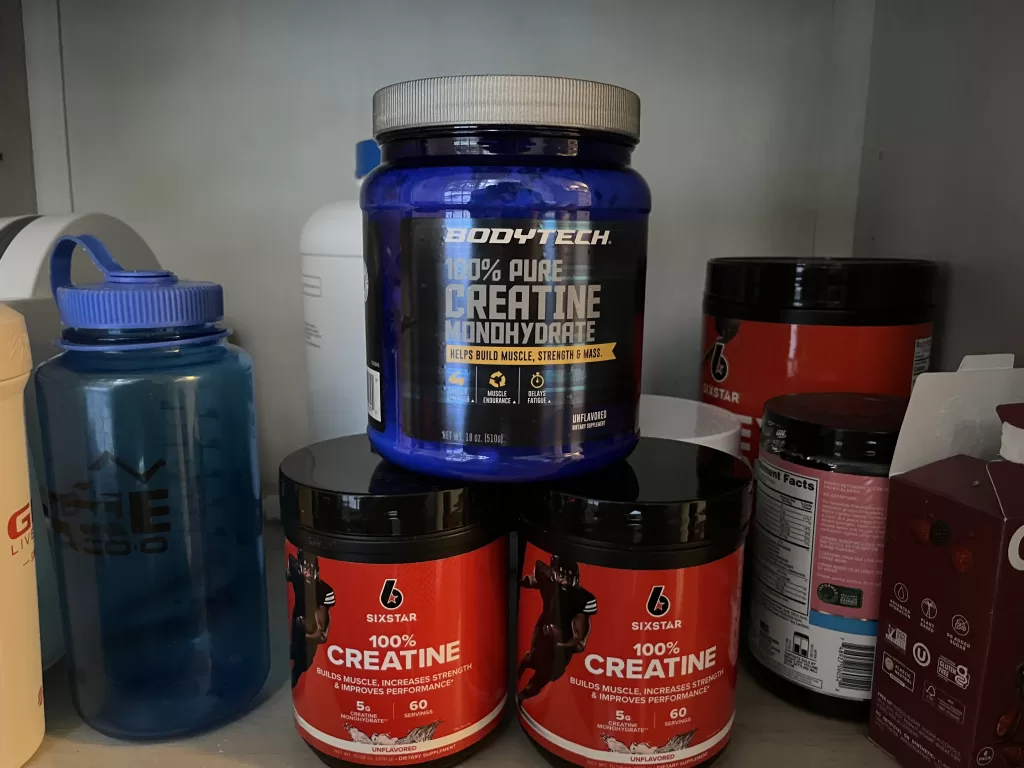Creatine is one of the most popular supplements in the world when it comes to all things fitness, and for good reason. Creatine is one of the most used and researched supplements to date, and it offers a huge variety of benefits while remaining one of the safest supplementation options around.
That being said, there are still many people who don’t fully understand creatine; what it is, how it works, etc.. There are many myths and misunderstandings regarding the supplement, even in 2025. Some people falsely believe it is a steroid, while others assume it is only beneficial for bodybuilders.
In reality, both are false. Creatine is a naturally occurring compound found in every human, as well as in many common foods, primarily meat and fish. It plays a very important role in energy production, muscle growth, and brain function.
In this guide, we will go over in-depth what creatine is, how it works, its benefits, potential side effects, and how to use it effectively. The goal is to help you gain a full understanding of whether creatine is what you expected, if it is right for you, and how you can use it correctly to maximize its potential for athletic performance, muscle growth, and overall health.
Understanding Creatine
What is Creatine?
Creatine is a naturally occurring organic compound made up of three amino acids: arginine, glycine, and methionine. It is produced in the liver, kidneys, and pancreas, and about 95% of the body’s creatine is stored in skeletal muscle, with the remaining 5% found in the brain, heart, and other tissues.
Creatine is found naturally in foods like red meat and fish, but the average person only consumes around 1-2 grams of creatine each day through their diet.
Meanwhile, the Journal of Nutrients states that dietary creatine needs to be in the 2 to 4 g per day range in order to promote general health.
For those who train hard, even this amount is probably not enough to maximize muscle creatine stores, which is why supplementation is so common.
How Does Creatine Work in the Body?
Creatine works mainly by increasing the availability of phosphocreatine in muscle cells.
Phosphocreatine is a high-energy compound that helps regenerate adenosine triphosphate (ATP), which is the primary energy source in the body.
During short but intense activity, like running at a full sprint or lifting heavy weights, ATP is rapidly depleted in the body. Because the body can only store a limited amount of ATP, athletic performance begins to decline as ATP levels drop.
This is where creatine supplementation comes in and saves the day. By increasing phosphocreatine stores, creatine regenerates ATP faster, helping your muscles to maintain high levels of performance for longer amounts of time.
On top of helping your body regenerate energy, creatine has a variety of other benefits. Let’s go over some of the main ones.
Benefits of Creatine Supplementation
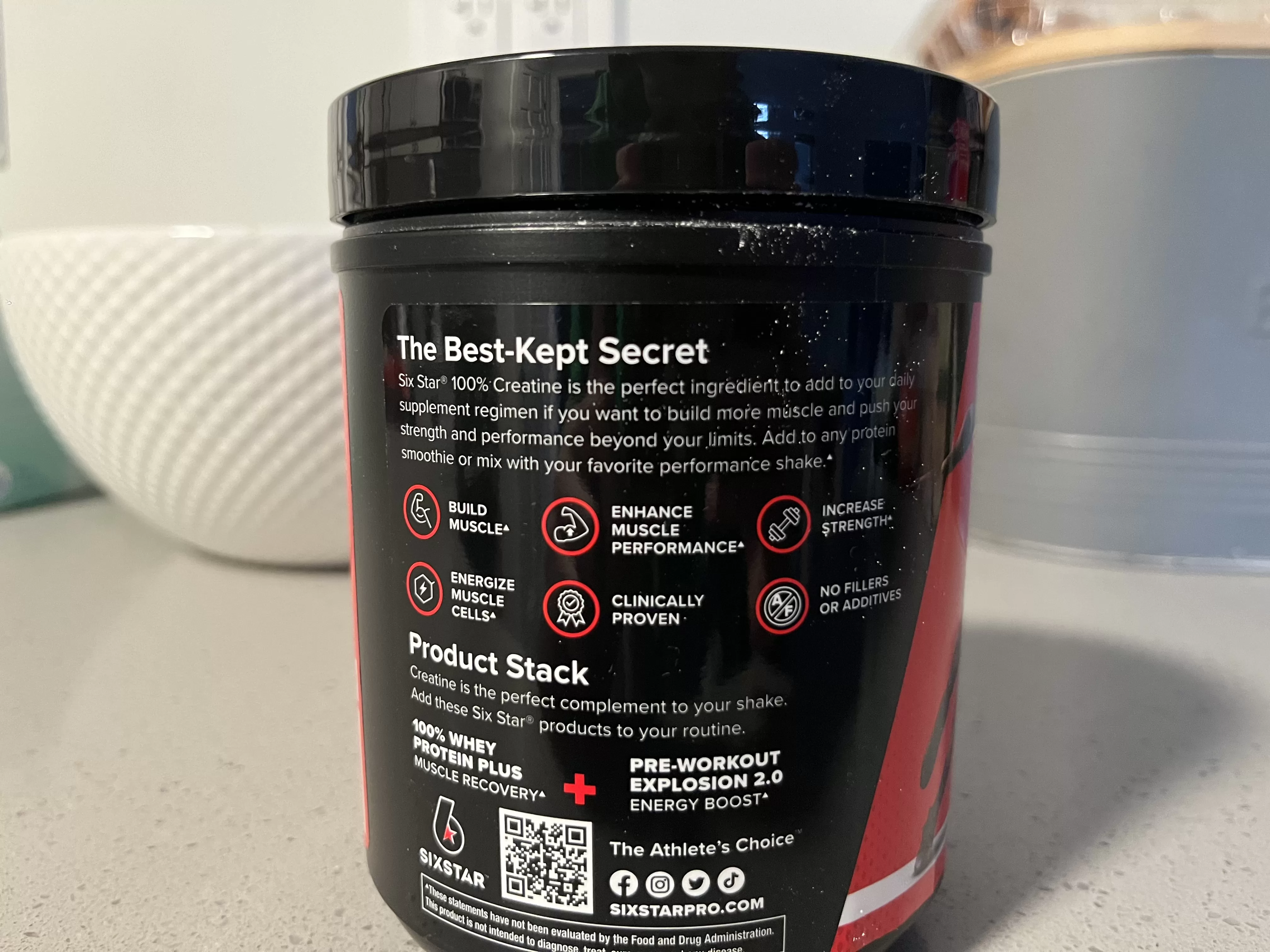
Enhanced Athletic Performance
Creatine is one of the few supplements with overwhelming scientific evidence supporting its effectiveness in improving athletic performance.
Numerous studies have shown that creatine supplementation can enhance the following:
Strength and power output
The International Journal of Sport Nutrition and Exercise Metabolism and many other scientific studies have proven that creatine enhances maximum strength and power, especially in short-duration (less than or around 30 seconds), high-intensity exercise.
One study by Cooper et al. found that creatine has been shown to improve maximum strength by 5–15%, in activities like bench press, squat, and deadlift, as tested by 1 rep maximums. In the same study, Kaviani et al. also reported increases in 1RM strength in leg press and shoulder press within two weeks of creatine supplementation.
There is an overload of evidence to support this, and I myself noticed the gains within a few weeks of originally supplementing creatine. It will make you stronger.
Sprint speed and explosive movements
Athletes who are involved in sports or do a lot of movements that need short bursts of power, like sprinting, jumping, and Olympic weightlifting, benefit from the higher availability of phosphocreatine.
Creatine supplementation enhances sprint performance significantly by increasing the speed and reducing the total time of intermittent sprints.
In a study conducted by the Scandinavian Journal of Medicine & Science in Sports, male sprinters consuming creatine demonstrated improved velocities in a 100m sprint and better performance in a series of six 60m sprints, due to an increased availability of phosphocreatine (Skare et al., 2001).
This evidence shows that creatine does in fact enhance performance in demanding sports that require explosive movements.
Muscular endurance
Creatine also helps sustain performance over a longer period of time, so you can do more reps or sets before getting tired.
For example, studies have found that creatine can improve time to exhaustion during intense activities by enhancing the anaerobic work capacity, which directly influences the number of repetitions athletes can perform at a given weight (Forbes et al., 2022).
This is a huuge game-changer. Creatine does this by increasing your phosphocreatine stores by about 20%, according to The Journal of International Society Of Sports Nutrition. This energy availability will help your muscles maintain performance levels even after you are slightly fatigued.
Muscle Growth and Recovery
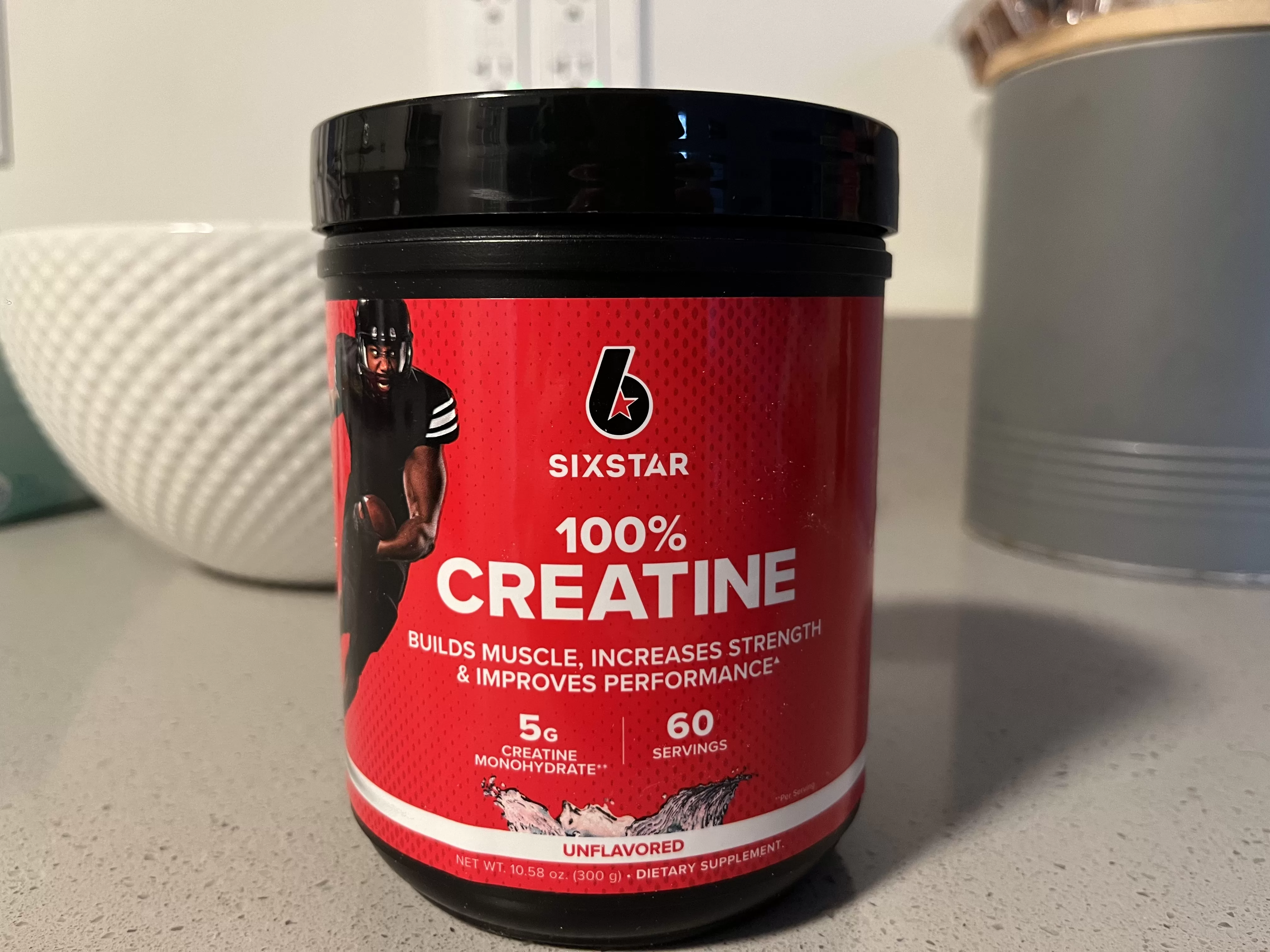
While creatine does not directly stimulate muscle growth like anabolic steroids (don’t worry!), it improves the conditions necessary for hypertrophy, aka muscle growth.
By allowing athletes to train harder, lift more weight, and perform more volume, creatine indirectly promotes muscle development.
Additionally, creatine helps reduce muscle damage and inflammation following intense exercise.
Studies by the Journal of Life Sciences have shown that creatine supplementation can lower levels of markers associated with muscle damage, such as creatine kinase (CK) and lactate dehydrogenase (LDH). This leads to faster recovery times.
Another study done by the Journal of Physiology shows that creatine also plays a role in satellite cell activation, which is a huge part of the process of muscle repair and growth. Satellite cells are responsible for muscle regeneration, and creatine has been shown to enhance their activation following resistance training.
Cognitive and Neurological Benefits
Next up is possibly my favorite of all discovered benefits! New and emerging research suggests that creatine supplementation is not only beneficial for physical performance but also for cognitive function and brain health.
The brain, just like your muscles, relies on ATP for energy, and since creatine helps replenish ATP stores, it enhances cognitive function, memory, and mental clarity.
Trials done by The Experimental Gerontology Journal indicate that creatine supplementation can improve short-term memory and intelligence/reasoning, particularly in individuals under cognitive stress or aging populations (Avgerinos et al., 2018).
Studies also suggest that those who have lower baseline creatine levels, like vegetarians, experience even greater cognitive benefits from supplementation (Benton & Donohoe, 2011).
More studies have come out and shown that creatine can help enhance mood, especially in those who are lacking in proper sleep (McMorris et al., 2006). This is a huge boost for people who are very busy, maybe with working late hours or taking care of their kids, which can reduce sleep and induce an overall feeling of not having high energy.
Lastly, preliminary findings suggest that creatine may help slow the progression of diseases like Parkinson’s and Alzheimer’s by protecting neurons from oxidative stress and energy depletion.
Potential Side Effects and Safety Considerations
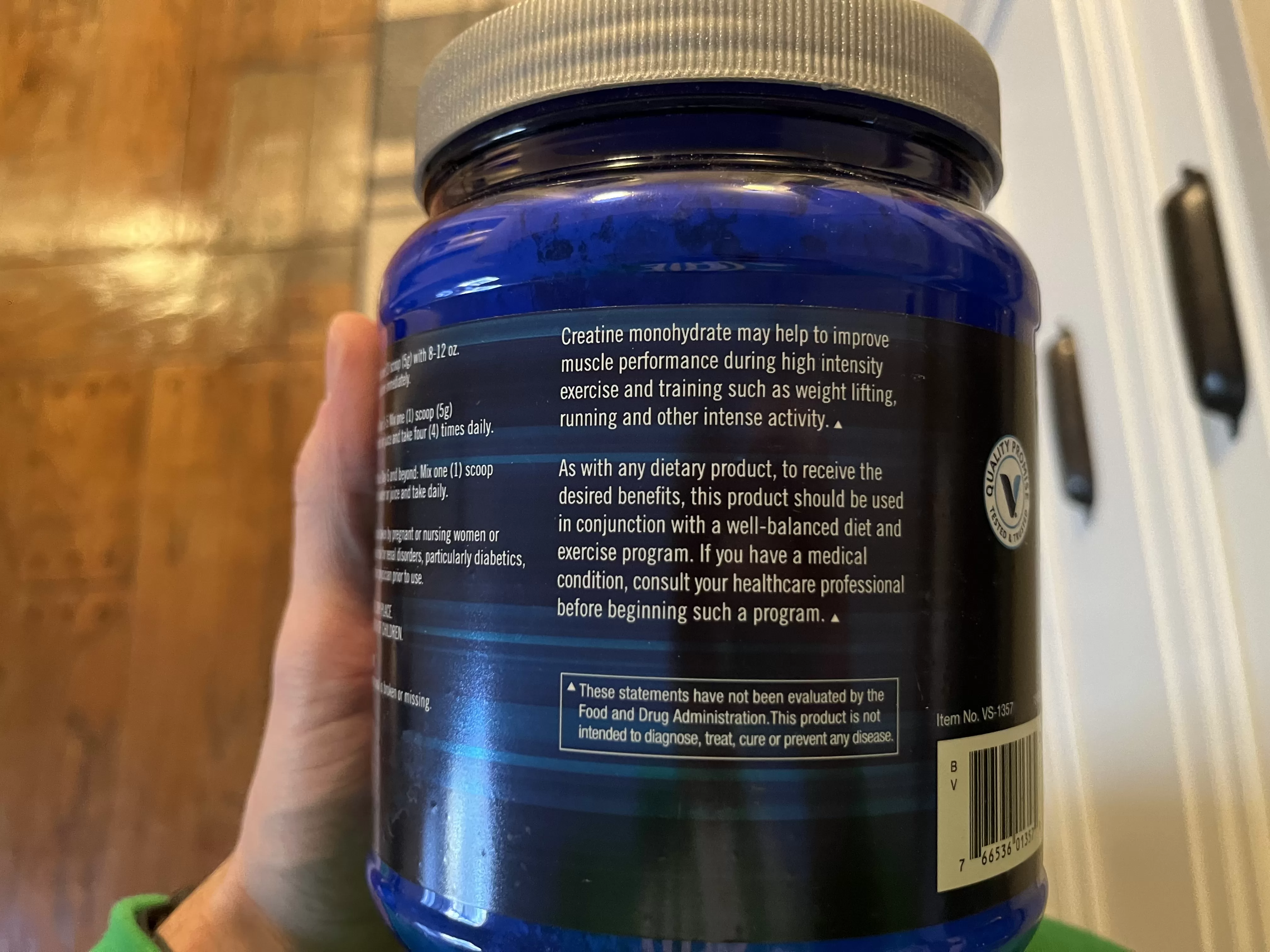
Common Side Effects
Creatine is widely regarded as one of the safest supplements available, with decades of research supporting its long-term safety.
However, some individuals may experience minor side effects, including:
- Water retention – Creatine pulls water into muscle cells, leading to temporary weight gain of 1–3 pounds. This is not fat gain but rather an increase in intracellular water volume. So if you are wondering: “will creatine make me gain weight?” This is your answer, in short.
- Digestive issues – Some people experience bloating or stomach discomfort when taking large doses of creatine at once. This can often be fixed by simply taking smaller doses throughout the day to meet your end daily goal.
Addressing Myths and Misconceptions
Despite overwhelming evidence of creatine’s safety, there are also a lot of myths regarding creatine that linger around today:
- “Creatine causes kidney damage.” Studies, including one done by Revista Médica de Chile have repeatedly shown that creatine supplementation does not impair kidney function in healthy individuals.
- “Creatine dehydrates you.” Contrary to this myth, creatine actually promotes cellular hydration, reducing the risk of dehydration.
- “Creatine is a steroid.” Creatine has no hormonal properties and does not function like anabolic steroids. It is simply an energy-boosting compound found naturally in food. If creatine is a steroid, everyone you know is on steroids (they’re not).
Who Should Be Cautious?
Creatine is safe for the vast majority of individuals, but those with pre-existing kidney disease should consult a healthcare professional before supplementation.
Pregnant and breastfeeding women should also seek medical advice before taking creatine, as research in these populations is limited.
If you are unsure if you should be cautious, go see a healthcare professional or dietitian and get advice.
How to Use Creatine Effectively

Different Forms of Creatine
The most widely studied and recommended form of creatine is Creatine Monohydrate. When you hear someone saying they are taking creatine to help them workout, this is most likely what they’re talking about.
Other forms, such as Creatine HCL, Creatine Ethyl Ester, and Buffered Creatine, have been marketed as superior alternatives, but research has consistently shown that Creatine Monohydrate remains the most effective and cost-efficient option.
Recommended Dosage and Timing
There are two primary dosing strategies which are recommended by almost every single scientific study done on creatine. Here is how you should follow:
- Loading Phase: Take 20g per day (split into 4 doses) for 5–7 days, followed by a maintenance dose of 3–5g per day.
- Standard Daily Dose: Take 3–5g per day from the start, without a loading phase. This approach takes longer to reach full muscle saturation but is equally effective in the long run. Totally up to you.
Combining Creatine with Other Supplements
Creatine can be combined with:
- Carbohydrates and protein – Creatine mixed with these macronutrients, especially carbs, has been shown to increase insulin response and very slightly improve the benefits of the supplement. If you aren’t hyperfocused on gains, don’t worry about this too much, but if you can combine it with carbs after a workout, do it.
- Beta-alanine – This supplement helps support creatine by buffering lactic acid, which improves endurance.
- Electrolytes – This is a simple one, as electrolytes help maintain hydration when using creatine. Electrolytes in general are a great tool for anyone who works out hard, which is usually the type of person using creatine.
Conclusion
Creatine is one of the most effective, well-researched, and safest supplements available.
It enhances athletic performance, supports muscle growth and recovery, and even provides cognitive benefits.
I have used it for years, reaped many of the benefits, and never ran into any health issues. That being said, no two people are the same.
Make sure you are using creatine properly, and taking care of your fitness and well-being outside of supplementation to maximize the benefits of creatine.
With proper usage, creatine is a game-changer for athletes and anyone who goes to the gym or workouts and is
